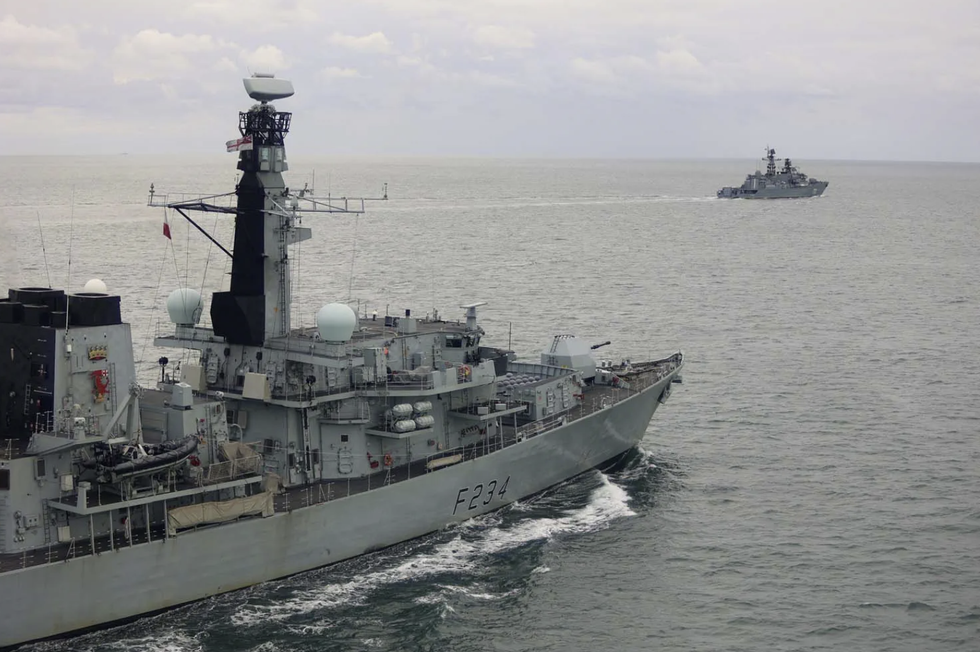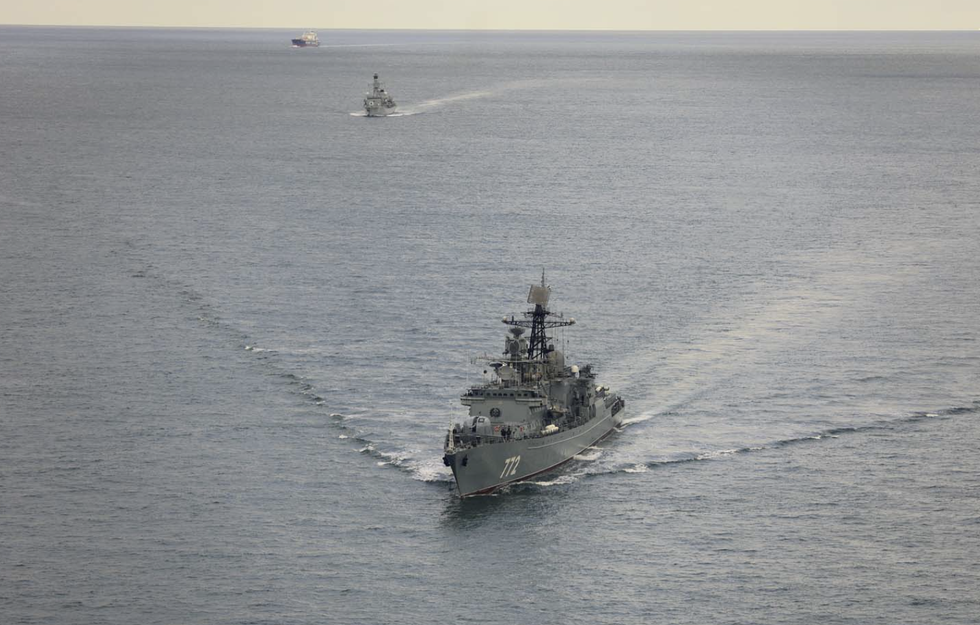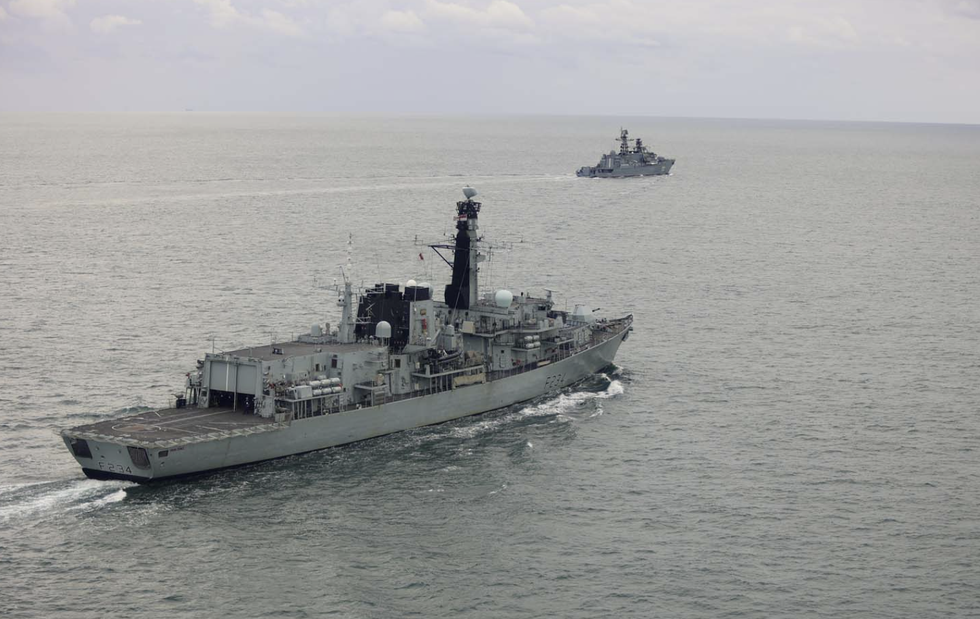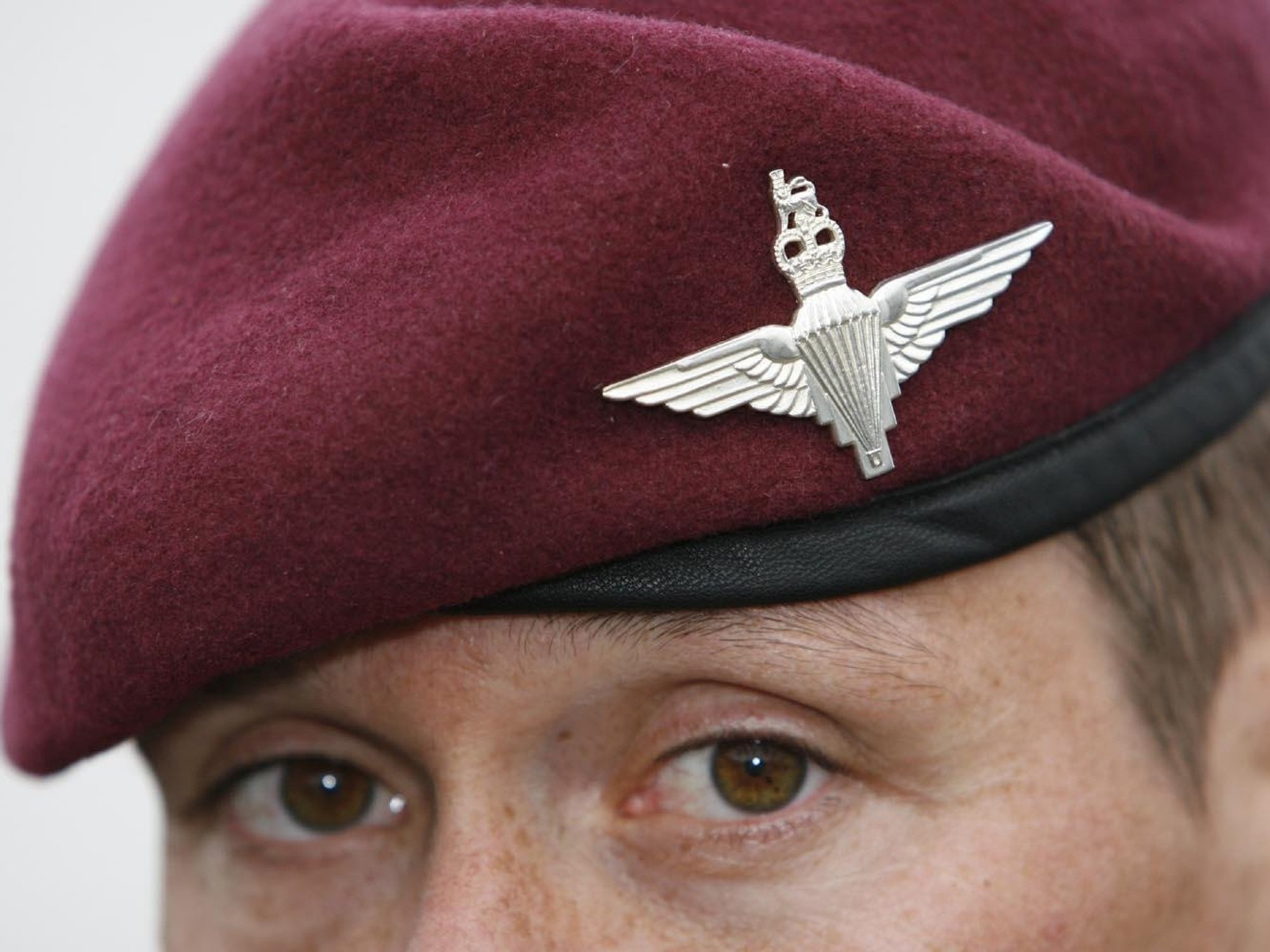Royal Navy shadows two Russian ships in UK waters in operation to protect Britain

WATCH: Former Royal Navy flagships HMS Albion and HMS Bulwark will be decommissioned as part of a series of money-saving cuts
|GB NEWS

The ships were tracked through the English Channel and North Sea en route to Baltic waters
Don't Miss
Most Read
Trending on GB News
A pair of Russian vessels traversed UK territorial waters, with a Royal Navy warship and helicopter launched to shadow the ships.
The Plymouth-stationed frigate HMS Iron Duke, supported by a Wildcat helicopter from the 815 Naval Air Squadron based at Yeovilton, maintained continuous observation of the Russian naval frigate RFN Neustrashimy and the merchant vessel Sparta IV.
The surveillance effort forms part of Britain's strategic defence initiatives under the Government's Plan for Change, aimed at securing national waters.
The mission, which ran from September 20 to 23, saw naval forces from four Nato member states collaborating to monitor the Russian vessels' passage through the North Sea and English Channel.
The Royal Navy deployed sophisticated radar systems and surveillance equipment to track the Russian frigate whilst it accompanied the cargo vessel Sparta IV on its journey through British waters towards northwestern French territory.
When the vessels reached waters near Ushant island, responsibility for monitoring Sparta IV transferred to another Nato member as the cargo ship proceeded towards the Mediterranean Sea.
HMS Iron Duke maintained its surveillance of the Soviet-built warship Neustrashimy during its return journey, tracking the vessel as it navigated back through the English Channel and North Sea en route to Baltic waters.
The aerial surveillance component saw the Wildcat helicopter launch from Somerset's Royal Naval Air Station Yeovilton, gathering intelligence on both Russian vessels from above whilst operating along England's southern coastline.
LATEST DEVELOPMENTS

HMS Iron Duke made the journey
|ROYAL NAVY
Defence Readiness and Industry Minister Luke Pollard highlighted the growing frequency of Russian naval movements through the English Channel, emphasising Britain's round-the-clock maritime surveillance capabilities.
"Russian warships are increasingly transiting through the English Channel. The Royal Navy protects the UK 24/7 to monitor Russian movements, ensuring the security of our waters and undersea cables," Mr Pollard stated.
The minister characterised the operation as evidence of Britain's resolve alongside Nato partners in countering Russian activities.
"Alongside our commitment to Nato's Eastern Sentry, this is a clear demonstration of how the UK stands firm with our Nato allies to deter Russian aggression," he said.

Russian naval frigate RFN Neustrashimy and the merchant vessel Sparta IV were shadowed
|ROYAL NAVY
Mr Pollard, the MP for Plymouth Sutton and Devonport, affirmed the Government's pledge to equip the armed forces adequately,
He said: "The Royal Navy's steadfast dedication and professionalism are essential to safeguarding the UK, and the Government remains committed to providing our Armed Forces with the resources they need to keep us secure at home and strong abroad."
Commander David Armstrong, who leads HMS Iron Duke, emphasised the often-overlooked nature of these maritime security operations and his crew's pride in protecting Britain's strategic interests.
"This type of tasking goes largely unseen, and as a ship's company we are extremely proud of our direct contribution to the UK's national interests; more specifically to the security of our energy, data, food and trade and to the country's Critical National Infrastructure," Armstrong said.

Navy chiefs said this kind of operation usually goes 'unseen'
|ROYAL NAVY
The commander stressed the vital importance of maritime defence for Britain's island geography.
"It is important as an island nation to steadfastly safeguard the security of our seas, the Royal Navy is focused and fully committed to the extremely busy military aspects of the broader maritime security mission," he stated.
This latest mission marks the eighteenth deployment of HMS Iron Duke for such surveillance duties within the past year, during which the frigate has tracked 25 Russian vessels.
Back in February, following the collapse of the Assad regime, the Royal Navy has tracked six Russian ships through the English Channel as they carry military equipment and ammunition during their retreat from Syria.
The group consisting of three naval vessels and three merchant ships were monitored by British forces as they made their way through UK waters.
The convoy, which includes the landing ship Aleksandr Otrakovsky capable of carrying 500 tonnes of armoured vehicles, has been under surveillance since early yesterday morning.
The hasty withdrawal comes amid Russia's sudden departure from Syria after the fall of its longtime ally last year.
HMS Iron Duke, RFA Tideforce, HMS Tyne and a Wildcat helicopter from 815 Naval Air Squadron have been involved in monitoring the Russian convoy.










